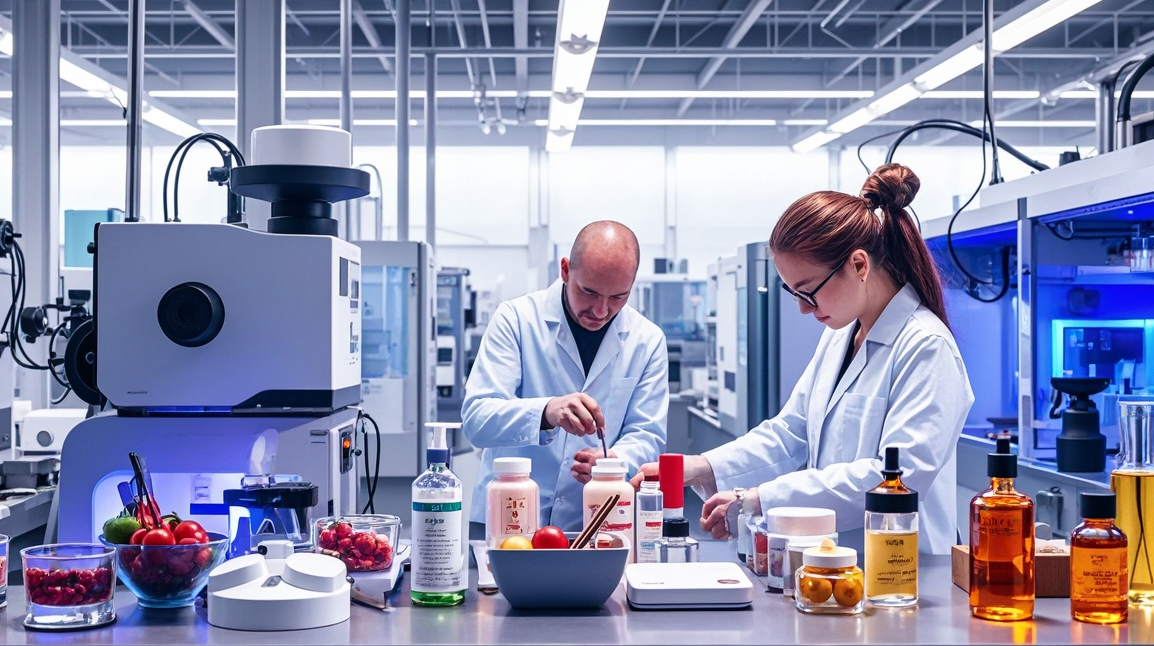Introduction
The beauty industry is undergoing a remarkable transformation, thanks to the integration of artificial intelligence (AI). From personalized skincare solutions to AI-driven marketing strategies, the potential of AI in the beauty sector is vast and ever-expanding. This article explores the multifaceted role of AI in beauty, examining everything from product development and market research to marketing and AR integrations. We will also delve into the challenges and ethical considerations that come with AI adoption, ensuring a comprehensive understanding of this technological revolution.
The Role of AI in Beauty Product Development
AI Product Formulas and Ingredient Discovery
AI is revolutionizing product development by enabling faster and more efficient formulation processes. By analyzing vast datasets, AI can identify emerging trends and suggest innovative ingredient combinations. This not only accelerates the development cycle but also ensures that products are tailored to meet consumer demands effectively. For instance, AI algorithms can scan research papers and consumer feedback to discover new natural extracts or suggest optimal ingredient blends, leading to more targeted and effective beauty products.
Personalized Beauty Solutions
Personalization is at the heart of AI's impact on the beauty industry. AI algorithms analyze data such as skin type, previous purchases, and even social media behavior to recommend products that align with individual needs. Companies like Oddity have leveraged AI to achieve a 26% increase in revenue by offering precise product matches, enhancing customer satisfaction and loyalty.
AI in Marketing and Consumer Engagement
AI Marketing Strategies
AI is transforming marketing strategies by enabling brands to create personalized campaigns that resonate with consumers. Through the analysis of consumer data, AI can identify popular trends and suggest marketing strategies that align with current consumer interests. This targeted approach not only improves engagement but also reduces marketing costs. Brands utilizing AI for marketing have seen improved targeting and reduced ad spending, demonstrating the efficiency and effectiveness of AI-driven marketing strategies.
AI and AR Integrations
Augmented reality (AR) combined with AI is reshaping consumer engagement in the beauty industry. Virtual try-on tools allow consumers to experiment with different makeup products and hairstyles using their smartphones, providing a realistic preview without the need for physical samples. This technology not only enhances the shopping experience but also reduces return rates, as consumers are more confident in their purchases.
AI in Business Operations
Supply Chain Management
AI plays a crucial role in optimizing supply chain management by improving forecasting accuracy and reducing waste. Estee Lauder, for example, reported a 30% increase in forecasting accuracy after integrating AI into their supply and demand planning. This ensures that products remain in stock and production aligns with consumer interest, minimizing waste and enhancing operational efficiency.
E-commerce Optimization
AI enhances the online shopping experience by personalizing the journey for each consumer. From rearranging product categories to providing precise search results, AI-powered e-commerce platforms improve navigation and increase sales. This personalized approach strengthens customer loyalty and ensures a seamless shopping experience.
Ethical Considerations and Challenges
Data Privacy and Algorithmic Bias
As AI becomes more prevalent in the beauty industry, ethical considerations such as data privacy and algorithmic bias come to the forefront. Brands must ensure that personal data is handled with care, complying with regulations like GDPR. Additionally, AI algorithms must be trained on diverse datasets to prevent biased results, ensuring fair and inclusive product recommendations.
AI Hallucinations and Copyright Issues
AI hallucinations, where AI systems generate incorrect or misleading information, pose a significant challenge. Brands must implement rigorous checks to ensure the accuracy of AI-generated content. Furthermore, copyright issues may arise when AI uses existing content to generate new materials, necessitating clear guidelines and ethical practices.
The Future of AI in the Beauty Industry
Accelerated Innovation and Market Growth
The AI-driven beauty market is projected to grow significantly, with estimates suggesting it could reach $16.4 billion by 2033. This growth reflects the increasing adoption of AI tools across the industry, from niche applications like fragrance recommendations to comprehensive AI-powered skin diagnostics. As AI continues to advance, the beauty industry can expect faster product development, more personalized solutions, and a broader global reach.
Practical Tips for Brands and Consumers
For brands looking to integrate AI, starting with chatbots for customer service or basic recommendation engines is a practical first step. Consumers can benefit from exploring brand websites that offer virtual try-ons, ensuring they find the right product without extensive trial and error.
AI is undeniably transforming the beauty industry, offering personalized solutions, enhancing marketing strategies, and streamlining business operations. However, as this technology continues to evolve, it is crucial for brands to address ethical considerations and ensure responsible AI use. By striking the right balance between innovation and responsibility, the beauty industry can continue to thrive, offering consumers a more personalized and satisfying experience while maintaining trust and authenticity. As we move forward, embracing AI's potential while addressing its challenges will be key to unlocking the full benefits of this technological revolution.



